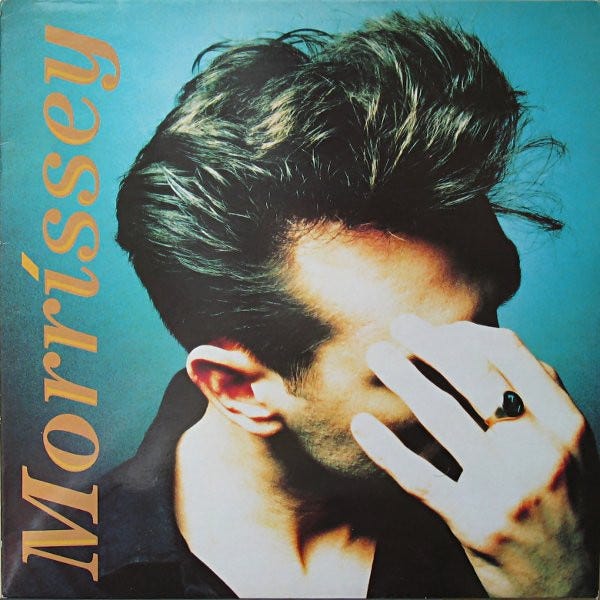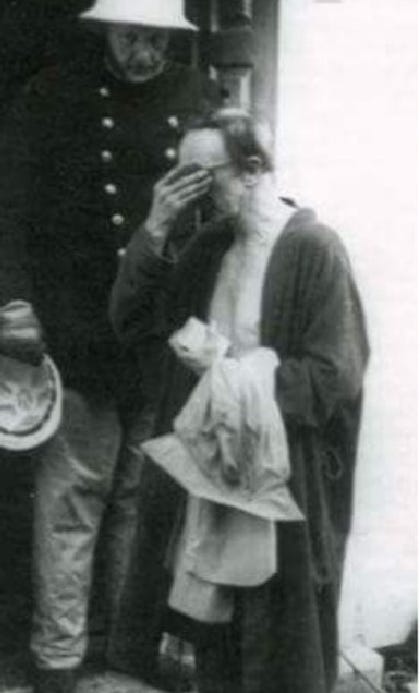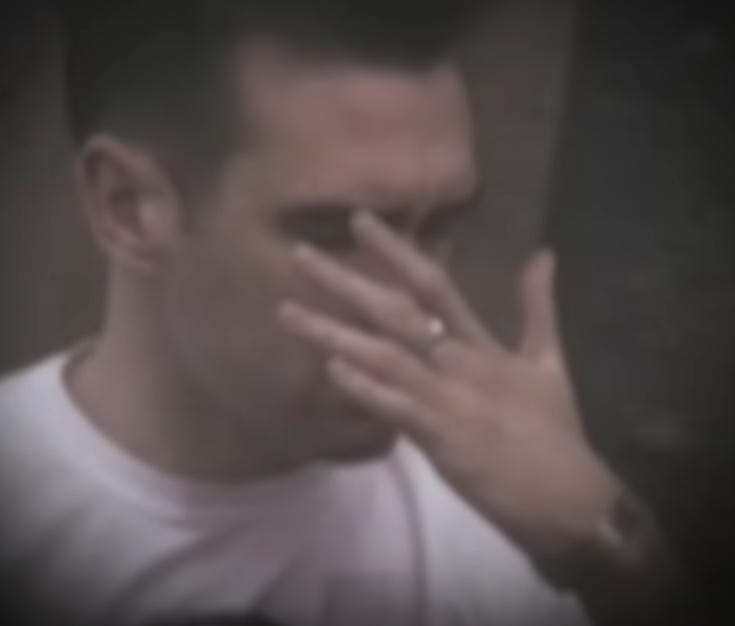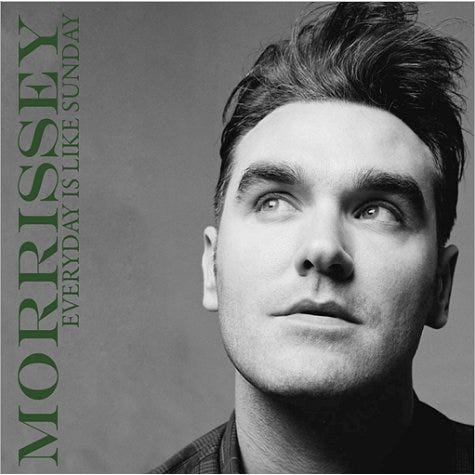“Be not afraid of greatness. Some are born great, some achieve greatness, and others have greatness thrust upon them.”
-William Shakespeare, Twelfth Night
While ‘Suedehead’ may have been Morrissey’s first release post-Smiths (and a very much well-received one at that), his second single - ‘Everyday Is Like Sunday’ - has proven to be his apogee as a solo artist.
The disposition of the Smiths in the late summer of 1987 was still very much unsettled; while Johnny Marr had quit the group, neither Morrissey nor his two remaining bandmates were sure of the path forward in the wake of his departure. Amid this swirl of uncertainty, Stephen Street sent Morrissey a tape containing the music for ‘Everyday Is Like Sunday’ (along with other demos that Street had composed).
““[…] Stephen Street drops off a cassette at my flat of his own compositions - an action timed as if on cue, since EMI are muttering how the hour for a Morrissey disc has arrived.”1
As Morrissey stated in a later interview with Sounds Magazine, “At the time there were no other people presenting things and I happened to like what Stephen had done. It happened very quickly.”2
Morrissey liked what he heard, and decided to move forward with recording ‘Everyday Is Like Sunday’ along with the other tracks that eventually appeared on his debut studio album, Viva Hate. Without fanfare, a career as a solo artist was born.
The Viva Hate sessions spanned October to December in 1987 at Wool Hall Studios in Bath, England. Notwithstanding their desire to continue making music with Morrissey, neither Rourke nor Joyce were invited to participate.3 Rather, producer Stephen Street played bass, with Vini Reilly on guitar, and session musician Andrew Paresi on drums.
‘Everyday Is Like Sunday’ was the third-track on Viva Hate, which was released on March 14, 1988. The song was released as a single on May 30, 1988, reaching number 9 on the UK Singles Charts. In the UK, the A-side runout of the vinyl format of the single was etched with "NINETEEN EIGHTY HATE".
The single’s release was also accompanied by a promotional music video directed by Tim Broad, which was filmed in Southend-on-Sea in England.4
The single’s curious cover art features of photograph of Morrissey, head tilted away from the camera, covering his right eye with his fingers.
It is presumed that Morrissey is imitating his comedic idol, English actor Charles Hawtrey5, who famously (or perhaps more aptly, infamously) struck a similar pose when he emerged from his house in the aftermath of a fire in August 1984 during a romp with a young rent boy.
It is notable that two clips of Hawtrey appear in the aforementioned music video for ‘Everyday Is Like Sunday’ (at 2:44 and 3:04. Each were taken from the 1972 British comedy film Carry On Abroad).
Moreover, Morrissey reprises his Hawtrey-inspired pose at 3:28 in the music video.
Watch the promotional music video here:
‘Everyday Is Like Sunday’ appears on the compilation album Bona Drag (released October 1990). The song was remastered and re-issued as a single in October 2010 in Europe. The runout on the A-side of the vinyl format of the re-issued single was etched with “CAN YOU SEE THE BLACK CLOUD?”
The 2010 re-issue debuted at number 42 on the UK singles chart, and coincided with the 20th-anniversary re-issue of Morrissey’s Bona Drag compilation album.
While Morrissey’s debut single, ‘Suedehead’, charted higher upon its release (peaking at number 5), ‘Everyday Is Like Sunday’ has over time proven to be one of his most successful and critically acclaimed songs as a solo artist. Indeed, Morrissey has performed ‘Everyday Is Like Sunday’ in concert a staggering 662 times to date, making it his most prolific live song.
Morrissey’s lyrics for ‘Everyday Is Like Sunday’, seemingly a lament of the drudgery of a seaside town, were partly inspired by Nevil Shute's novel On the Beach6. However, it would be inaccurate to infer opprobrium from the song’s lyrics - nothing could be further from the truth. Rather, the lyrics are meant to celebrate the wonderful
Keep reading with a 7-day free trial
Subscribe to Morrissey, Ringleader of The Tormentors to keep reading this post and get 7 days of free access to the full post archives.








